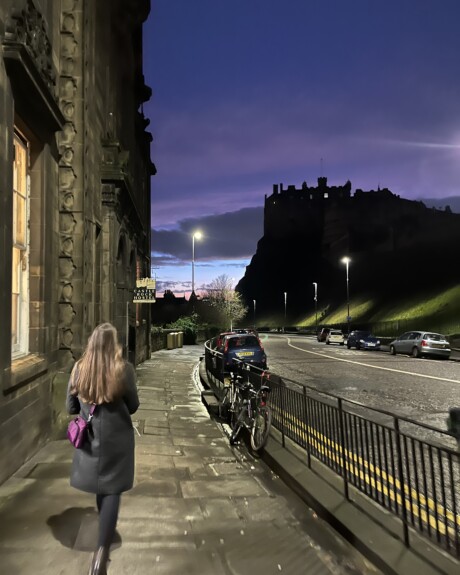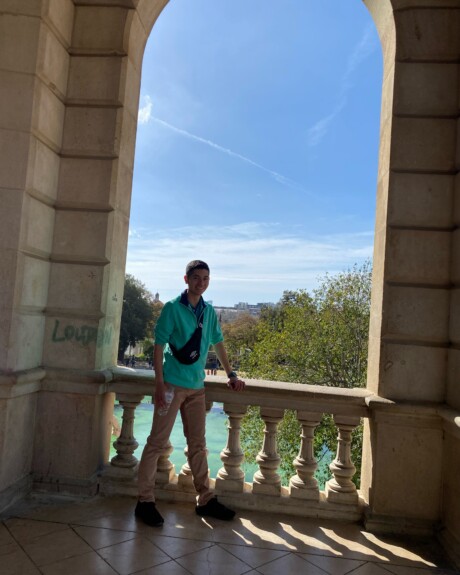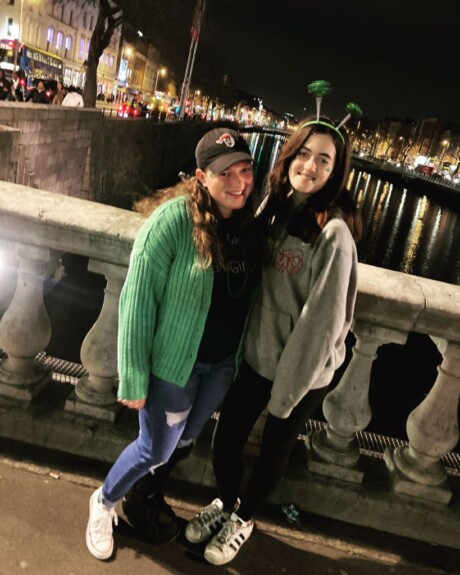
My favorite part of my Edinburgh Preview class was getting to connect with a group of people with similar interests I would not otherwise have met. I am a senior now and I still keep in touch with friends I met in my preview class! Our instructors elevated this class beyond expectations both inside the classroom and on the trip. The staff are just as excited to go on the trips as the students are!
Aoife Samuelson

I chose to participate in the Barcelona Food & Culture Preview because I had the opportunity to learn about another country and then travel with a great group of students. Visiting another country is definitely a once in a lifetime experience in which every moment is extremely special. I met new friends and having two very wonderful instructors!
Danny Ponciano
Preview the World: Course Listing Notes
- Application: Preview courses are not open to direct registration. Students must submit an application by the deadline and be placed in a course according to their application responses. All eligible first year and new transfer students will have received an email with a personalized application link; if you aren’t able to locate that email, please contact globalengagement@arcadia.edu.
- Courses: Please scroll down for a full list of courses. In your application, you will be asked to select your top three preferences so please review these offerings carefully.
Spring 2025 Course Offerings
Ecotourism & Sustainable Development in Costa Rica
Location: San Jose, Costa Rica
Instructors: Ryan Genova
Meeting Time: Wednesdays from 4:00-6:00pm
Travel Dates: 3/7-3/14
This course will explore the image of Costa Rica as a leader in the global ecotourism community. As Costa Rican tourism of all kinds has significantly increased over the past two decades, surrounding controversy has begged the questions: Is de facto ecotourism a sustainable practice, and can conservation and economic growth truly go hand in hand? We will focus on the role and polices of the Costa Rican government in managing the private sector, protecting the country’s biodiversity and natural lands, and its historical responses to criticisms levied by environmentalists. We will have the opportunity to learn from local sources, participate in sustainable practices related to Costa Rica’s ecosystem and local population, and visit some of the northern region’s most exotic landscapes. Students will depart San Jose with an increased awareness of natural preservation, the growing demands of the tourism industry, and the cultural integrity of the local community.
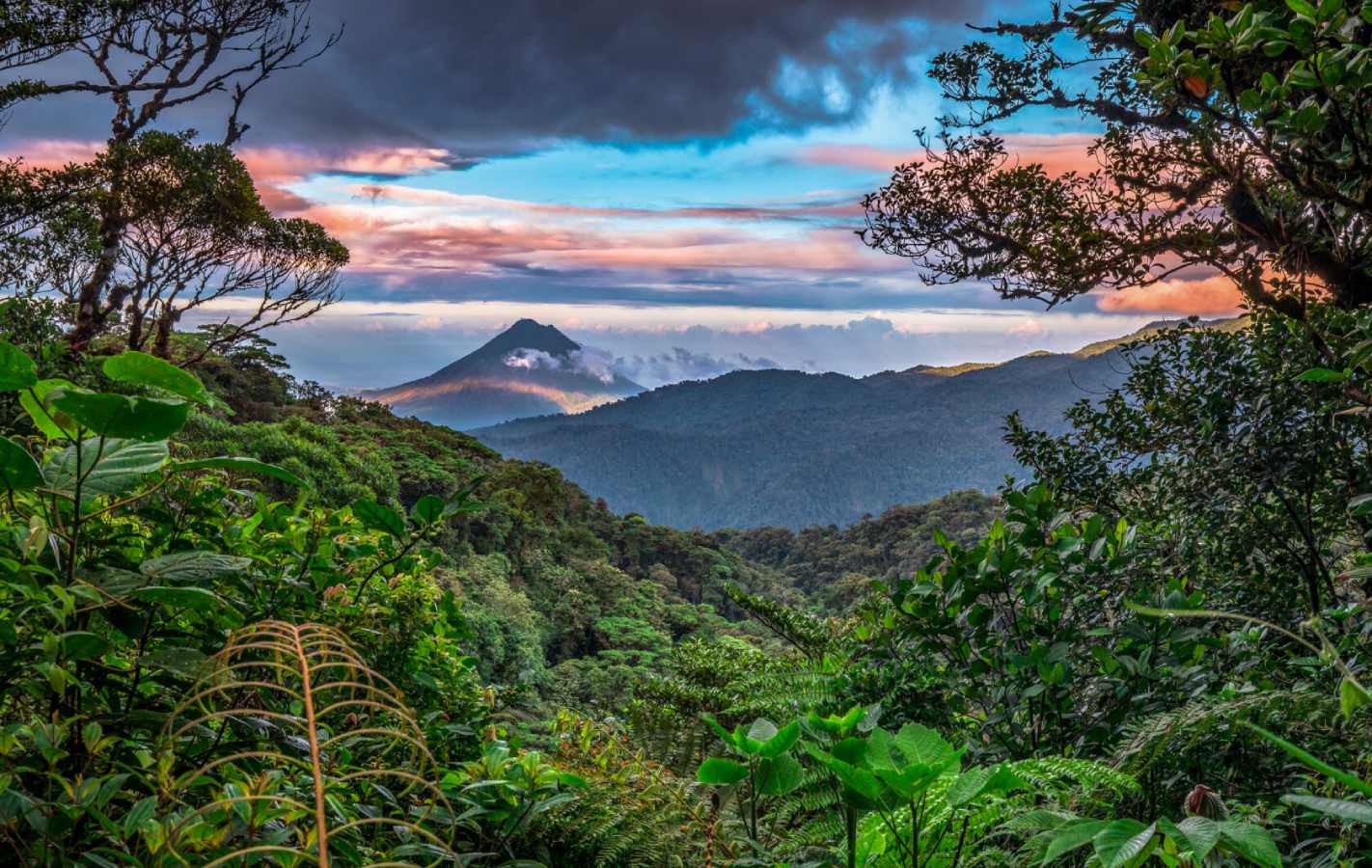
Ciao! STEM Innovations and Culture in Florence, Italy
Location: Florence, Italy
Instructors: Augusto Macalalag and Kimberly Dean
Meeting Time: Fridays from 2:45 – 4:45pm
Travel Dates: 3/7-3/14
The city of Philadelphia played a pivotal role in shaping the development of a new democracy, while the city of Florence played a role in the initiation of the Italian Renaissance. Both cities are steeped in scientific discovery and the advancement of their respective countries. In this course, students identify and examine the scientific pioneers, their discoveries and developments, and how the local culture and society fostered their work. Student participation in a variety of discussions and field explorations in Philadelphia, Pennsylvania and Florence, Italy introduces them to the interplay of science, society, and culture of two historic and well-known cities. Students will also explore the societal and political contributions of Benjamin Franklin and the Medici Family in the technological advances made during the Italian Renaissance and Colonial America. Finally, this course will examine the scientific triumphs of Philadelphia and Florence, but also encourages students to explore who benefited, who was excluded, and how these advancements intersected with social justice issues of the time. By examining the power dynamics, marginalized voices, and lasting impacts, students gain a richer understanding of science within its historical context.
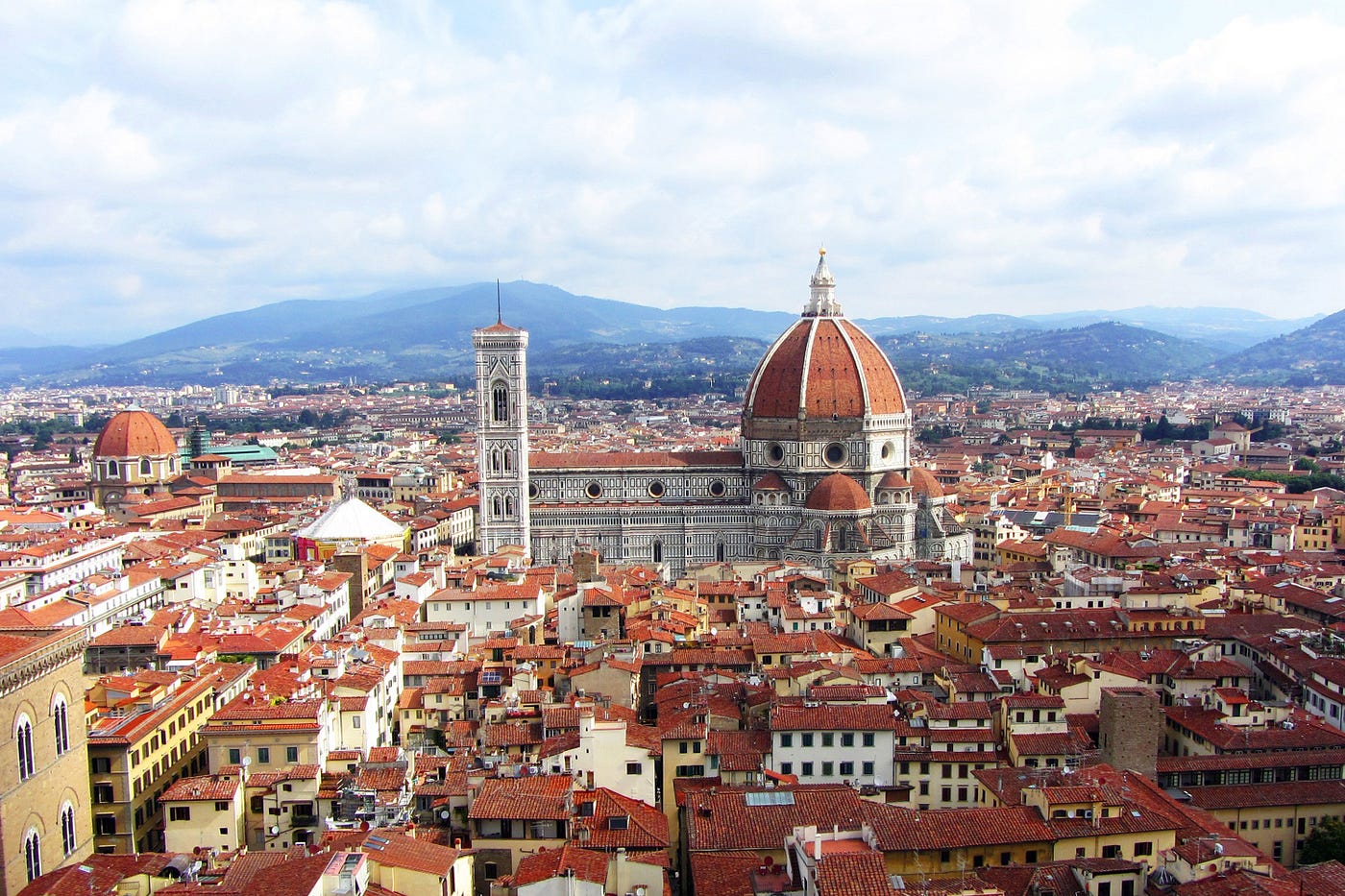
Tradition, Mythology and Modernity: Sicily Today
Location: Siracusa, Sicily, Italy
Instructors: Michelle Reale and Meg Nolan
Meeting Time: Fridays from 2:45-4:45pm
Travel Dates: 3/7-3/14
Preview to Sicily will examine this enigmatic island from tradition to modernity, touching on the various aspects of Sicilian culture both well known and more obscure. We will look at the culture through various lenses, such as religion, mythology, food, family, the Mafia and Italian stereotypes, to excavate the myriad aspects of a culture that has survived despite the many invasions the island has weathered!
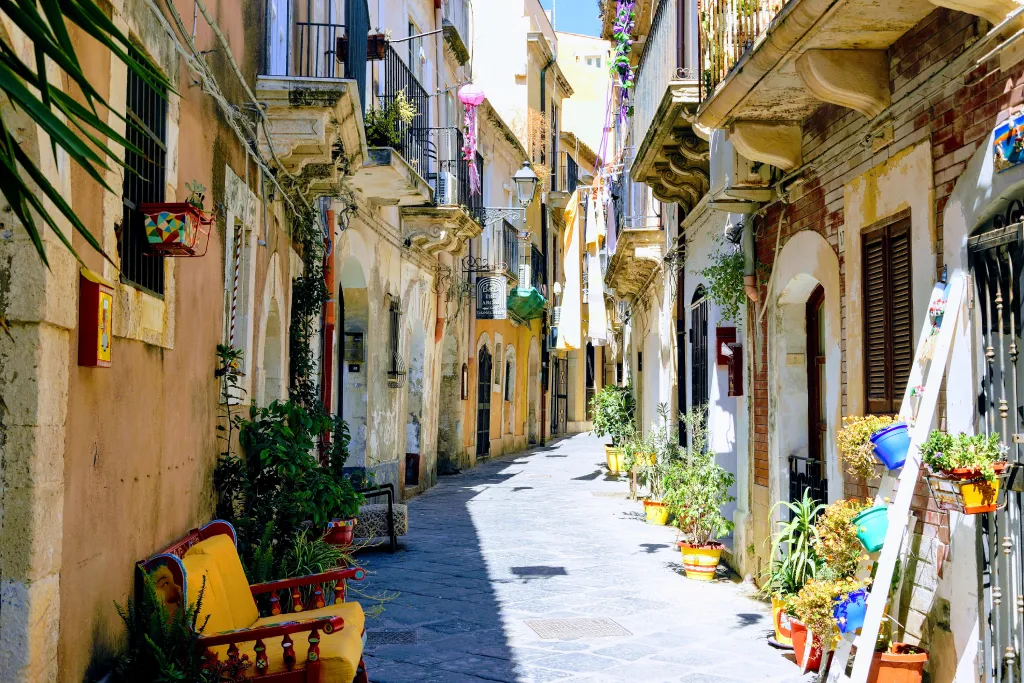
Greece: Myths and Civilizations
Location: Athens, Greece
Instructors: Allyson McCreery and Rhianon Visinsky
Meeting Time: Fridays from 2:45 – 4:45pm
Travel Dates: 3/8-3/15
The landscape of Greece invites people into a labyrinth of mythology and civilizations. In this course, students will examine the myths and literature of Classical Greece as well as the ancient civilizations that flourished from the Bronze Age to the Hellenistic Period of Ancient Greece. In Greece, students will explore ancient sites and civilizations, the relationship between mythology and landscape, and the legacy and impact of Ancient Greece on today’s world.
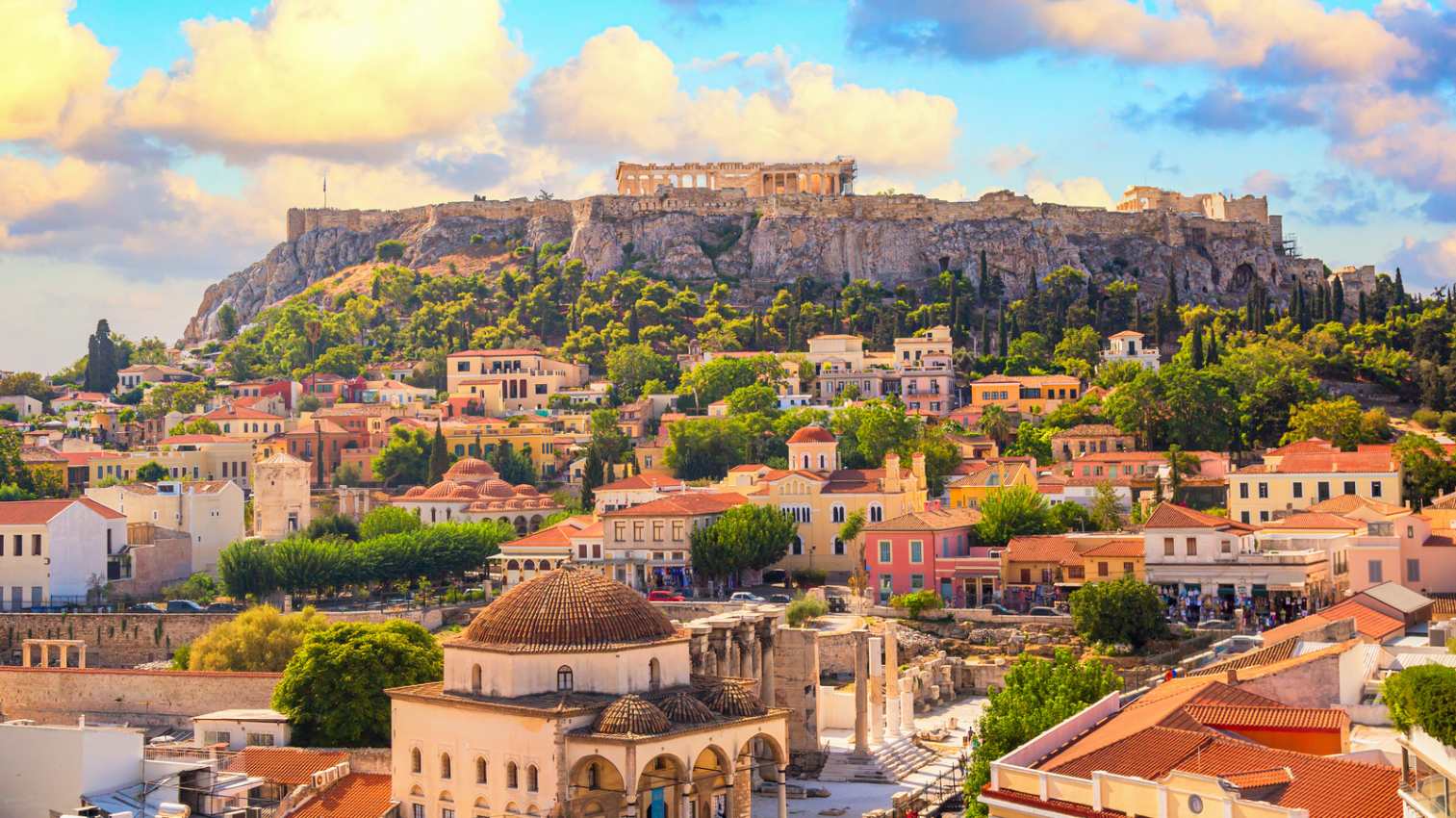
Paris: A City of Insiders and Outsiders
Location: Paris, France
Instructors: Kate Bonin and Matt Heitzman
Meeting Time: Fridays from 2:45-4:45pm
Travel Dates: 3/7-3/14
The city of Paris has been profoundly shaped by the powerful, the privileged, and the talented men and women who have inhabited it: from its kings, emperors and presidents; to brilliant engineers and technocrats such as Baron Haussmann and Gustave Eiffel; to groundbreaking artists and intellectuals such as Jean-Paul Sartre and Simone de Beauvoir. Over the course of the semester, and during our week-long stay in Paris, we will seek to understand the physical, political, economic and cultural structures of French civilization through our study of Parisian “insiders” and “outsiders.” As our investigations will show, these categories themselves are unstable, and liable to sudden reversals: such as Louis XIV, the absolute monarch who deliberately consolidated his power outside the city limits; or Maximilien Robespierre, one of the architects of the French Revolution, who was himself overthrown and guillotined; or the African-American authors and entertainers of the 1920s and 30s who left behind their marginalized status in the United States to make their home in the City of Lights. Each student enrolled in the course will choose a different “insider” or “outsider” (whether a leader of government, a revolutionary, an artist, musician, inventor, technocrat, financier, philosopher, or a criminal) as a focus of study.
Our course will also look each week at a short piece of travel writing about Paris. We’ll use these travel texts to think about the ways in which travelers are also always both “insiders” and “outsiders” in relation to Paris, French culture, and the French people. We’ll look at how other travelers have negotiated this dynamic, finding ways to connect to the local culture, but also recognizing the ways in which they are still distant from it. This will help us to prepare for and process our own travel experience to Paris.
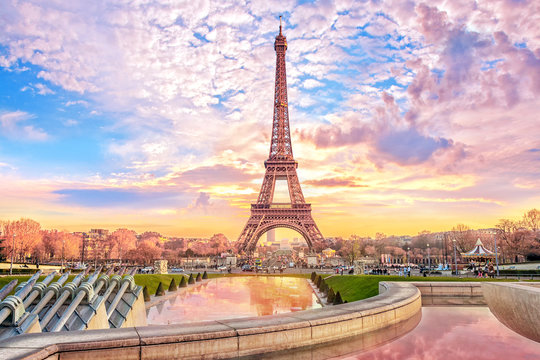
Rhythm & Culture: Exploring Music and the Arts in London & Philly
Location: London, England
Instructors: Stephen Tyson
Meeting Time: Mondays from 4:00-6:00pm
Travel Dates: 3/7-3/14
How do Philadelphia and London support local arts and culture? What does it mean to pursue a career in music and/or the arts in these cities?
In this course, we will meet various creative artists and professionals in Philadelphia and London, exploring how they are supported by the local community, how they brand and market themselves as creatives, and how they use their artistic talents for self-expression.
In both cities, our class will attend live events and visit various places related to the music and arts scenes (e.g., recording studios, concert halls, record stores, record labels, etc.). Guest speakers with expertise in the Philadelphia and London creative arts scenes will discuss their work and experiences with our class.
Throughout the course, students will journal what they learn from readings, assignments, guest speakers, and study abroad, to compare Philadelphia and London’s music and arts community and present final projects at Global Expo!

Empire’s Echo: Identity and Belonging in Imperial London
Location: London, England
Instructors: Breann Donnelly and Alisha Divis
Meeting Time: Thursdays from 4:00-6:00pm
Travel Dates: 3/7-3/14
Once arguably the “mightiest” Empire of them all, the legacy of the British Empire includes wide ranging implications on what it feels to truly belong to one’s society and culture. British imperialism fundamentally altered the demographic and cultural landscape of London. The influx of people from the colonies and former imperial territories into London created a diverse and multicultural city. However, alongside this diversity, there were also divisions and tensions based on race, class, and nationality. The experience of living in imperial London influenced individuals’ identity development in profound ways. As a class, we will work together to better understand the complexities of British society and culture, spanning historical events, social movements, and contemporary issues. The course encourages critical thinking, cultural awareness, and a deeper appreciation for the diverse narratives that contribute to the fabric of British identity. Our adventure together in London, will allow us to discover the real city outside of the square mile to learn the very different story that neighborhoods tell about history, identity, and the mirage of the crown.
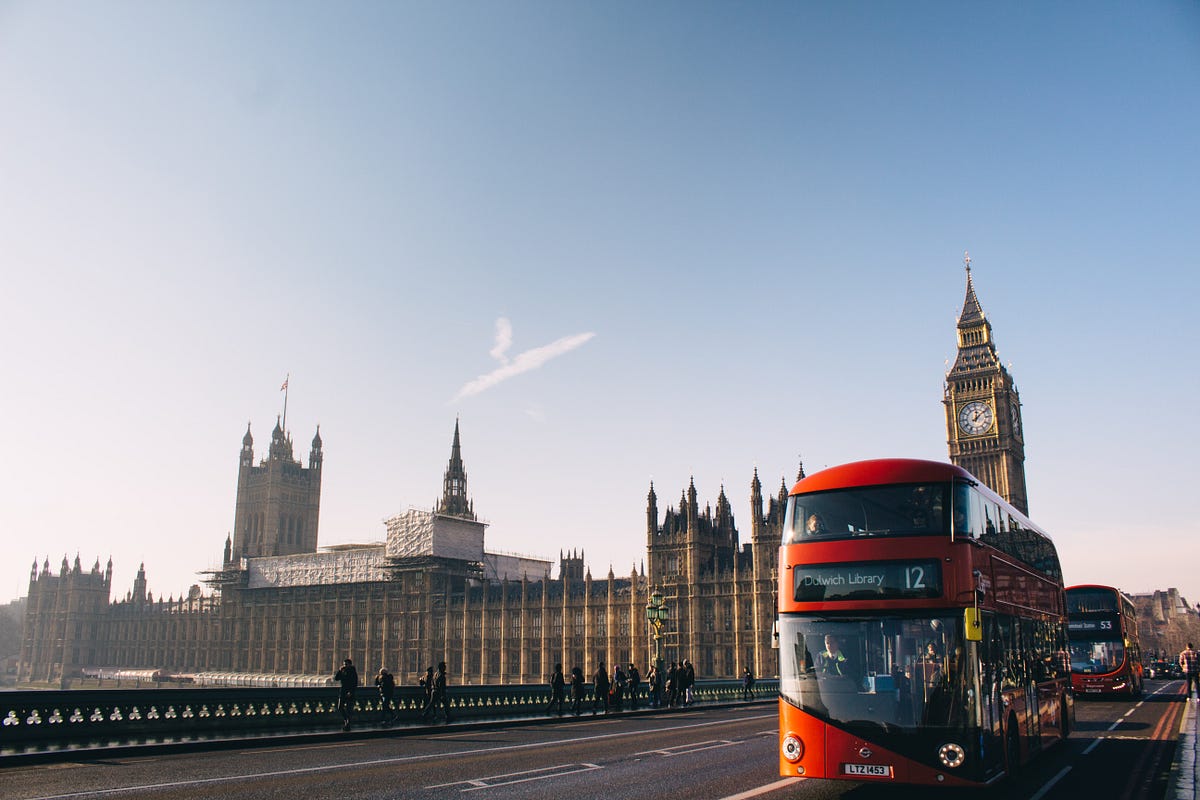
Imagination Rebellion: Art as a Pathway to Climate Justice in Glasgow, Scotland
Location: Glasgow, Scotland
Instructors: Ellen Skilton and Monica Day
Meeting Time: Thursdays from 4:00-6:00pm
Travel Dates: 3/7-3/14
Scotland was one of the first countries to declare a climate emergency, and has been at the forefront of the movement towards net zero carbon emissions, as well as efforts towards a “just transition,” acknowledging the imbalance of harm and impact of climate change and the need to remedy this injustice as we imagine solutions. During Preview, we will travel to the birthplace of the climate movement Extinction Rebellion, which began by interrupting the Scottish Parliament and demanding attention to climate change, to learn from community-based organizations using art and imagination to address the climate emergency at hand. Designed for artists and non-artists alike, this course explores the role of art and imagination in addressing climate change in general, and climate justice more specifically. Students begin by exploring their own relationship with nature, developing a deeper understanding of the connections between themselves and their environment, and learning new ways to express this connection and generate awareness, commitment and momentum for the climate conversation. Alongside their personal exploration, students will engage with environmental art and artists from around the world, movements such as EcoArt and Biomimicry, and cultural perspectives from Indigenous peoples to the Global South, adding important perspectives to their own personal lens. Upon their return, students will have an opportunity to share their work with the community at Global Expo, and also, to connect with local communities and projects for a full circle understanding of the role of art and imagination in creating a just future in a livable climate.

Hard Men: Deconstructing Scottish Masculinity
Location: Edinburgh, Scotland
Instructor: Daniel Pieczkolon and Jessica Derr
Meeting Time: Fridays from 2:45 – 4:45pm
Travel Dates: 3/7-3/14
For decades, sociologists have been reminding us that “gender is a social construct,” but how do different societies construct gender differently? How do factors like geography, economics, cultural history & representation, and so many more combine to inform our (mis)understanding of gender? This course provides students the opportunity to examine the cultural stereotype of the “Scottish Hardman” in contemporary Scottish fiction in an attempt to understand its root causes & material effects. To help us better understand the fiction, we will use academic essays, short films, personal reflection/refraction, classroom discussion, and experiential learning (in Edinburgh & Glasgow) to explore how masculinity reproduces itself—often to the detriment of other genders, society at large, and even those who benefit from it in some capacity.
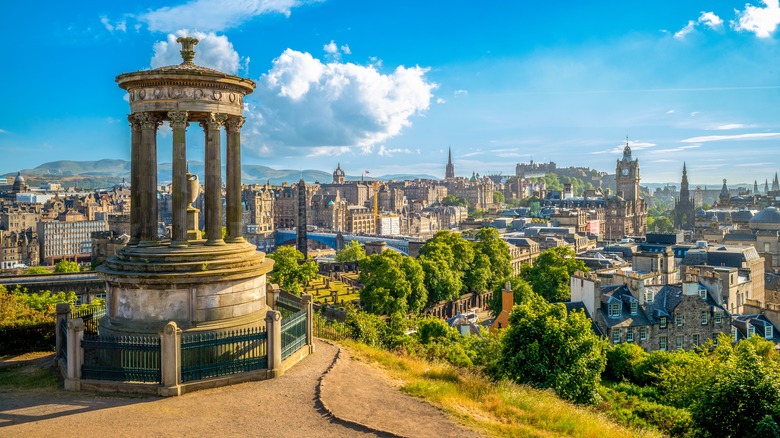
Dark Dublin: Exploring Ghost Criminology and Dark Tourism in Dublin
Location: Dublin, Ireland
Instructor: Favian Martin and Anthony Reyes
Meeting Time: Mondays from 2:45 – 4:45pm
Travel Dates: 3/7-3/14
Dublin abounds of stories of ghosts, murder, and supernatural events. Known for its colorful history, Dublin is a city ripe with paranormal stories. In fact, numerous tours and attractions focus on the macabre history of the city. In recent years, dark tourism has increased in Dublin, these tours offer visitors an opportunity to travel to historical places that are associated with death and tragedy. These tours cover stories that range from grave robbers of Glasnevin Cemetery to the ghosts of Kilmainham Gaol. Drawing on the theoretical framework of Ghost Criminology, dark tourism and Irish literature, students will explore and deconstruct the meanings of these macabre stories. Ghost Criminology analyzes how narratives of past trauma (i.e. murder and tragedies) are changed for political and personal reasons. In this course, students will understand the role of telling of these tales. Topics that will be covered include the following: trafficking of cadavers in 19th century Dublin, the Easter Rising of 1916, and Darkey Kelly (Ireland’s first convicted female serial killer and alleged witch) and other topics. In this class, students will be exposed to elements of criminology and sociology, and the history of Ireland to understand the factors that contribute to these stories. To fully deconstruct supernatural stories and immerse themselves in the Irish culture, students will travel to Dublin and visit the following places: Kilmainham Gaol, Glasnevin Cemetery, the vaults of St. Michan’s Church, GPO (General Post Office) Museum, and the Dublin Castle. Lastly, students will participate on a ghost tour of Dublin.
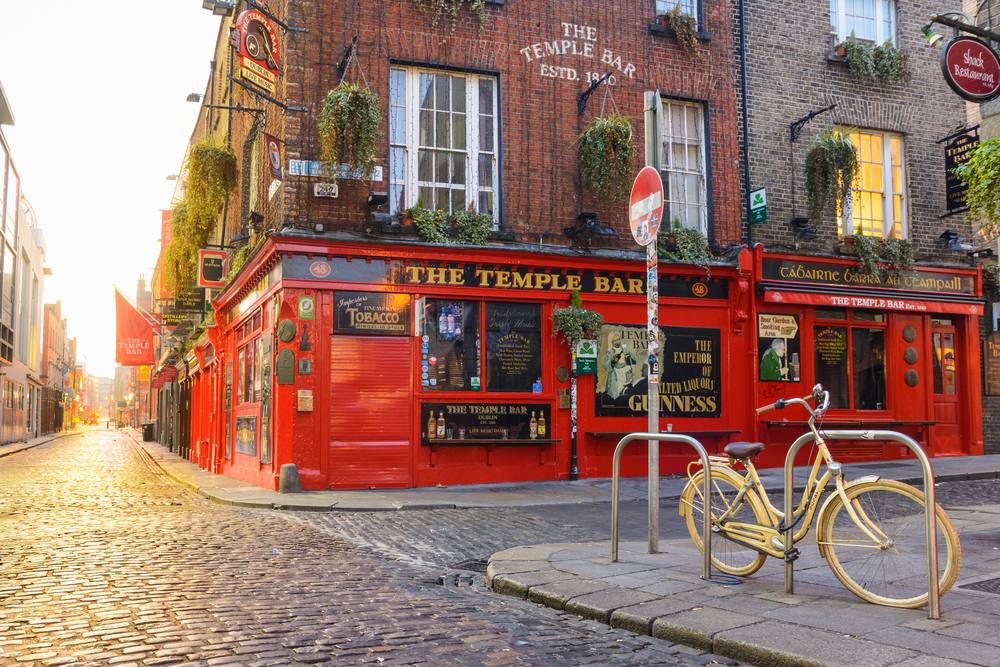
Wherever Green is Worn: Modern Ireland Through History and Tradition
Location: Dublin, Ireland & & Derry, Northern Ireland
Instructor: Tim Barton
Meeting Time: Fridays from 2:45 – 4:45pm
Travel Dates: 3/7-3/14
Ireland is often represented in popular culture as green fields and stone walls, St. Patrick and the land of saints and scholars, and friendly people with the gift of the gab, but is that what Ireland is truly like today? Ireland has changed dramatically in the last one hundred years while attempting to maintain the unique traits that have helped to shape its culture for centuries. This course will examine what it means to be Irish today and how this may differ from the Irish-American culture we often encounter in our daily lives. Focusing on the history, literature, sociology of Ireland, the course will explore the continuing tensions in Northern Ireland, the development of Ireland from its Celtic past to today, and why 80 million people around the world look to this small island as their ancestral home. Students will be engaged in firsthand experiences in both the Republic of Ireland and Northern Ireland, including walking tours of Dublin, lectures on modern Irish history, visiting to a coastal village, working tour of the Irish parliament, a visit to Derry to learn about Northern Ireland, and a tour of Celtic ruins in the Irish countryside.
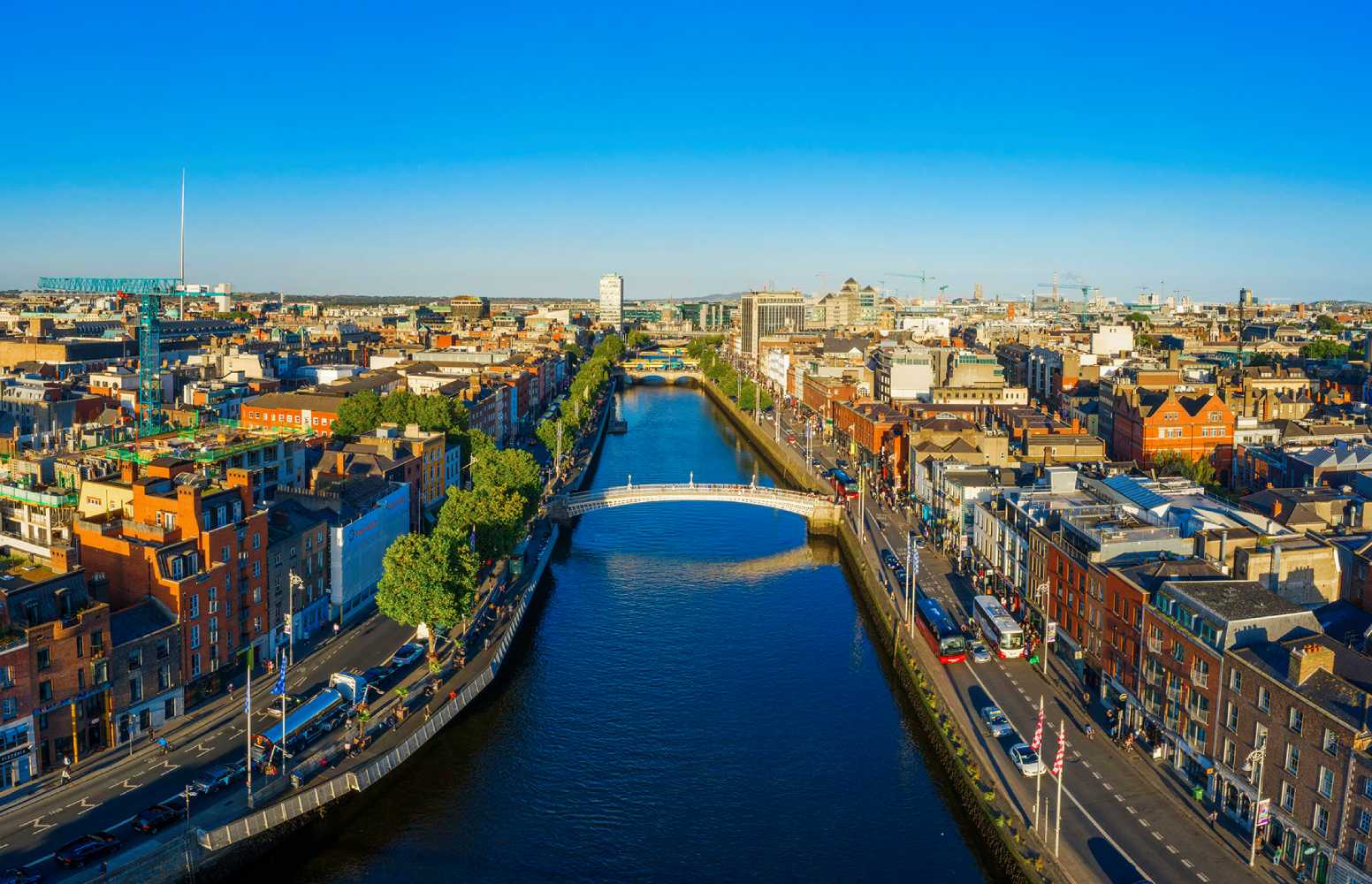
Culture, Ecology, and Sustainable Tourism in Bali, Indonesia
Location: Bali, Indonesia
Instructor: Jennifer Riggan
Meeting Time: Thursdays from 2:10-3:50pm
Travel Dates: 3/6-3/15
This course examines the promises and challenges of sustainable tourism from the perspective of Bali, an island in Indonesia. Sustainability is a major global challenge for human societies. Bali is a perfect-fit to explore themes in sustainability because it is at a critical turning point in its development: trying to balance tradition and modernity, cultural sustainability and economic advancement. During our course, Bali is our “living classroom” where we examine the ways that individual, community, and environmental well-being are intertwined and connected to global economies and local ecologies. Exploring Bali’s unique approach to sustainability through interactions with the island’s NGOs provides real-world context for issues discussed in the classroom. Students have multiple learning opportunities including visiting revered Balinese temples, exploring sustainability in a national park, snorkeling over coral restoration sites, speaking with a member of the Balinese royal family, and visiting an organization that brings simple technologies to communities in need.
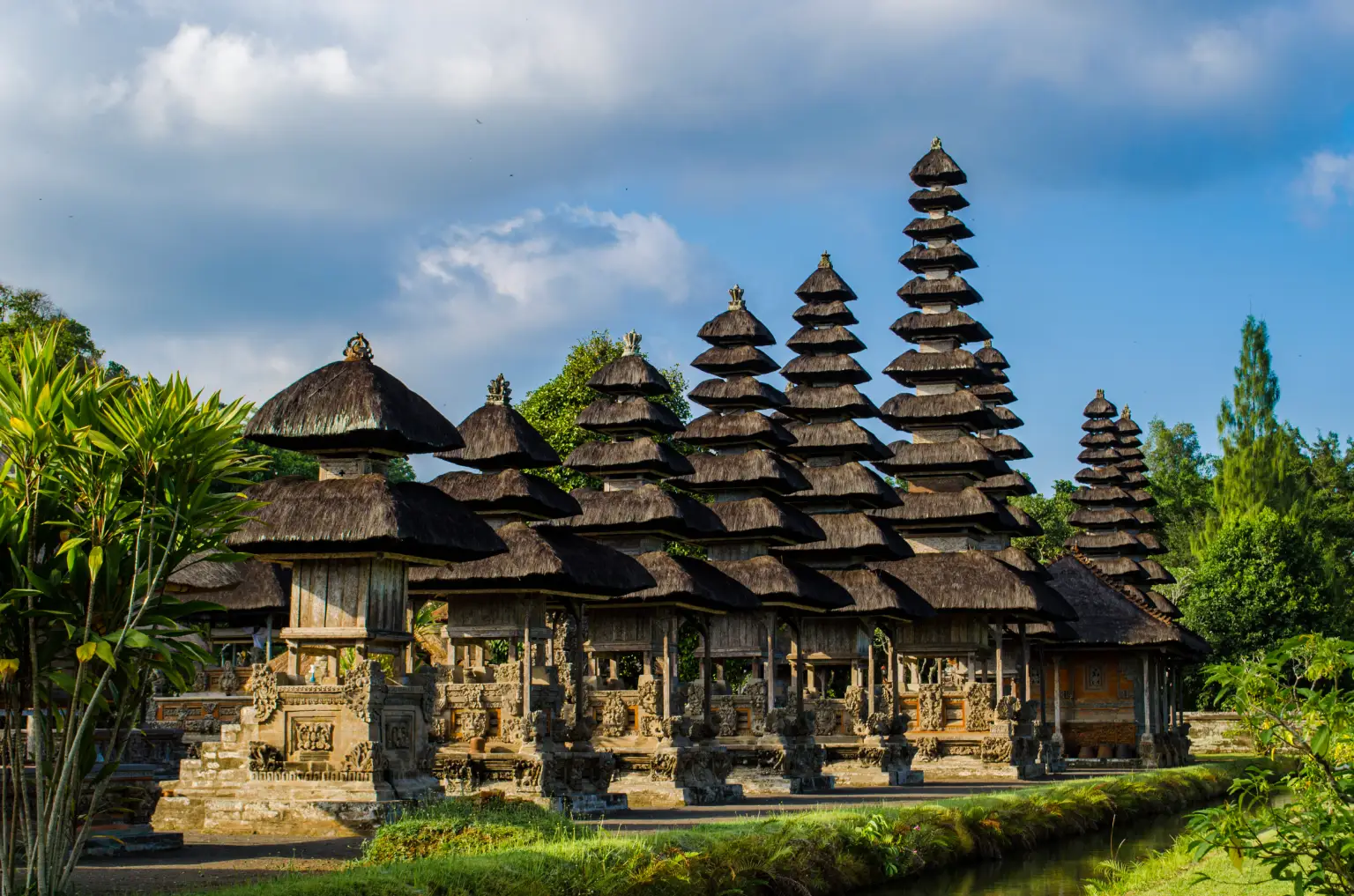
Exploring National Identity in Amsterdam
Location: Amsterdam, Netherlands
Instructor: Christopher Cerski
Meeting Time: Wednesdays from 4:00-6:00pm
Travel Dates: 3/7-3/14
Dive into the fascinating world of national identity and its influence on governmental power with this dynamic course. Discover how monuments, memorials, museums, sporting venues, and more contribute to shaping and expressing a nation’s character. Through an immersive field study, you’ll explore the rich culture and institutions of the Netherlands, with a focus on Amsterdam, The Hague, and other vibrant locations.
This hands-on experience offers an unparalleled opportunity to engage with Dutch culture firsthand, while developing a deeper understanding of how national identity is crafted and communicated. Enjoy the adventure of traveling abroad, making memories with your classmates, and gaining invaluable insights into the role of cultural landmarks in national identity.
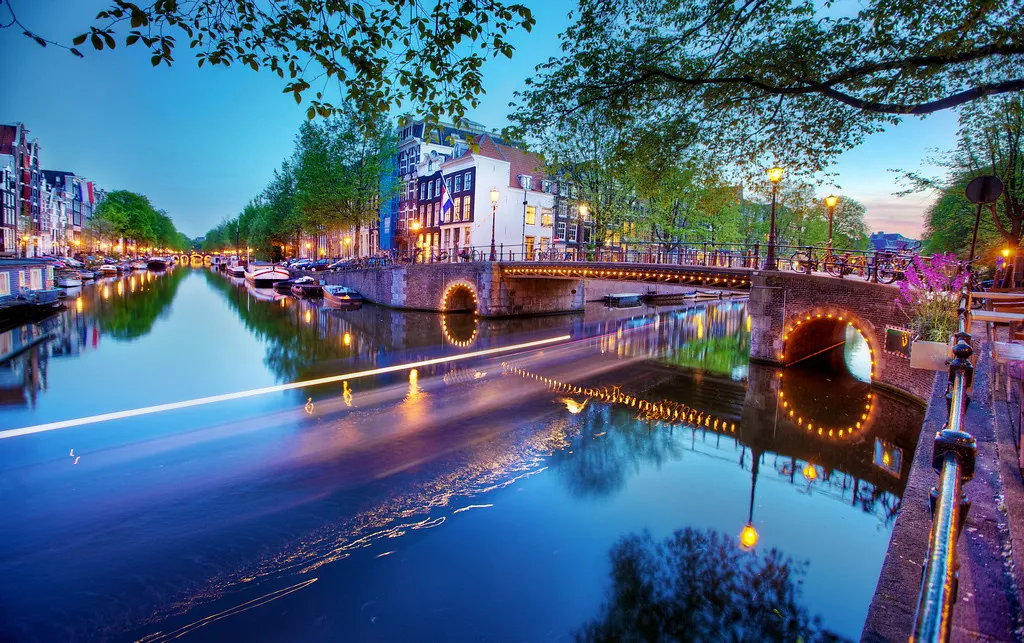
Preview the World FAQs
Who is eligible for Preview the World?
Full-time, matriculated first-year and new transfer students who enter the University in spring, summer, or fall participate in Preview during the following spring semester. Courses are open to all majors. You must maintain good disciplinary standing and must be passing your Preview class prior to departure.
Eligible students will receive an email invitation with a personalized application link in mid-September. If you think you're eligible for Preview and do not have this email after Sept. 15, contact James Shaw.
How do I sign up and choose a course for Preview the World?
If eligible, you will be notified by email in early fall about online registration. You will need to indicate your top three course preferences and be asked to write a brief personal statement that explains your interest in a particular course. Your statements will be reviewed and considered as part of your placement.
Do I get credit for Preview the World?
Yes, students who complete Preview the World courses earn two credits.
How much does Preview the World cost, and what does the fee cover?
The Preview the World fee is $795. The fee covers air and ground transportation, programmed events, accommodations, and some meals. You are responsible for passport/visa fees, meals, and incidental expenses (i.e. souvenirs and activities).
This fee is waived for students who receive a Pell Grant. Otherwise, you can pay this fee online through Self-Service or in-person at the Office of Student Accounts (the deadline will be shared with you via email).
Personal costs will vary among sites, but $50 per day is a modest budget. Past students report spending $250 to $500, depending on their habits and preferences.
How do I know if my fee is waived?
Students who receive a Pell Grant will have their fee waived. If you are unsure whether or not you receive this type of financial aid, you can check your financial awards letter or contact your financial aid advisor.
Who handles the accommodations and airfare?
Civic and Global Engagement and university partners arrange all travel logistics. Arcadia books group flights leaving from local airports. Accommodations vary in each location, but are clean, basic, and safe. Students room together in groups of two to four.
How can I access my money while traveling?
You should take an ATM card that is linked to a bank account for easy access to funds and for the best exchange rate. Your bank may charge small fees for foreign withdrawals.
It’s important to notify the bank of dates you'll be traveling. Credit cards (VISA or Mastercard) are accepted in most locations, except for smaller businesses. Travelers checks are not advisable.
Do I need to know the language of the country to participate?
Preview is open to you with or without language competency.
What is Arcadia’s refund/withdrawal policy?
The deadline to withdraw from a Preview the World class and receive a refund is December 1st. Students who withdraw after December 1st will not be refunded their Preview fee and may be responsible for paying non-recoverable costs.
Students who are removed from the course (including travel) due to academic or disciplinary reasons are not eligible for a refund, and may be responsible for paying non-recoverable costs.
All withdrawals must be communicated directly to Civic and Global Engagement at globalengagement@arcadia.edu. Students MAY NOT withdraw themselves from a course via their Self Service account.
Can my Preview travel plans change?
Sometimes, Arcadia needs to change Preview travel plans in order to keep everyone as safe as possible. An excerpt from the Preview Enrollment Agreement states:
Arcadia University reserves the right to cancel, alter, suspend, or amend any part of any program or to increase fees should circumstances make these actions advisable or necessary. I understand that the program calendar dates posted on the Arcadia University website are tentative in nature, and can change at any time. Arcadia University will alert me of any such changes and will work to minimize any disruption to my planning.
Do I need a passport or visa?
Passports are required for all international travel, and you will need to submit a copy to Civic and Global Engagement by November 1st (or proof that you have applied by October 15th). We strongly recommend that students request expedited passport processing (additional fee applies) for new passport applications and renewals (regular processing time is now more than four months). If you currently have a passport, be sure the expiration date is at least six months after your return date.
U.S. citizens do not require visas for short visits to most locations. Locations requiring a visa for U.S. citizens will be noted in the Preview announcement and course description. If you hold a passport from a country other than the U.S., you'll need to check requirements (and Civic and Global Engagement can help you). For U.S. "green card" holders, the passport determines visa requirements.
Please note this excerpt from the Preview Enrolment Agreement:
I understand that it is my responsibility to have all travel documents necessary for domestic and/or international program travel. For international travel, this includes a valid passport for the duration of my time abroad and for any required amount of time after I return as stipulated by the immigration policy of my host country. I agree to obtain any and all visa and clearances prior to my time abroad and ensure I have obtained the proper authorization to study in my host country. I understand that Arcadia University is not responsible for any decisions made by foreign embassies or consulates regarding approval of visa documentation and/or immigration clearance. I understand that the failure to obtain required travel documents by stated program deadlines may result in my removal from the program and that I may be responsible for non-recoverable costs incurred by Arcadia University on my behalf.
How do I pay for Preview the World (if needed)?
Students can pay online through Self-Service or in person at the Office of Student Accounts, 777 Building.
When paying in person, please request and keep a receipt for your payment. Please send James Shaw, shawj@arcadia.edu, an email to let her know that you have submitted your payment in person. If you have an account balance of at least the amount you need to pay, you can request that transfer by emailing the Office of Student Accounts and cc me: busoffice@arcadia.edu
Online payment process:
-
Log in to Self-Service
-
Click “Finances” tab
-
Click “View e-bill and pay”
-
Select “Make a payment” from the left side menu
-
Choose the correct payment from the “Available Items” section
-
Continue through checkout process using credit card (fee applies) or electronic check (no fee)
-
Keep the payment confirmation email you’ll receive once payment is submitted
Passports
Do I need a passport or visa for a Preview course?
Passports are required for all international travel, and you will need to submit a copy to Global Engagement. We strongly recommend that students request expedited passport processing (additional fee applies) for new passport applications and renewals because regular processing time is approximately 3 months. If you currently have a passport, be sure the expiration date is at least 6 months after your return date.
How do I apply for a passport?
Step 1: Fill out the passport application form.
Print and complete Form DS-11.
Apply for the standard/regular passport booklet, no need for the card or large booklet. Do not sign the application until you are told to do so by an authorized agent at your in-person appointment.
Step 2: Begin collecting all documents.
1) Proof of US Citizenship - usually a birth certificate and photocopies
2) Proof of Identity - other government issued ID, usually a driver's license and copies. If you don't have a driver's license, you can use 2 other forms of ID like a current student ID, social security card, voter registration card, or others.
Note: you will also need photocopies of 1 and 2 - black and white, single sided, printed on 8.5x11 sheets of paper
3) 2 photos of yourself that will be used for your passport photo - must be 2x2, color, frontal view with a white background; these are available for a separate charge at most CVS, Walgreens, Rite Aids, and some passport processing facilities with your application appointment
Step 3: Prepare your money order.
Generally, the cost is $130 for the application fee, $35 for the facility fee (and $60 for the expediting fee if necessary).
You will need to pay in the form of a check or a money order. Most agencies will not accept credit cards or cash, though some will.
Step 4: Make an appointment.
You will need to apply for your first passport in person.
Find a passport application acceptance facility near you to make an appointment- you will need to make an appointment; most places do not accept walk-ins.
Most students will use a post office. If you plan to do so, you can make an application appointment using this website: www.usps.com/scheduler to find a post office in a convenient location.
Note: we recommend that you schedule your appointment and then work on collecting documents and completing the application because appointments can be booked out several weeks depending on where you go for your application appointment.
How long does it take for my passport application to process?
Processing times can vary. You can find the current estimated processing time here.
Note: it can take up to 8-12 weeks to process during busier seasons though, so do not delay in starting and submitting your application! If you have questions or need help, don't wait - email us at globalengagament@arcadia.edu.
Can someone help me with my passport application?
Yes. The Division of Civic & Global Engagement have staff and student leaders available to assist you with your passport application. Click here to schedule a meeting with one of us!
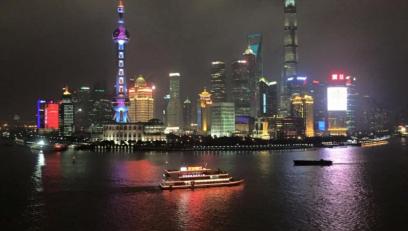
An Adventure Made in China
“Our conversation over barbecued pork and chicken feet on a skewer made me realize that though our governments are vastly different, we as people have much in common and a lot we could learn from each other.”
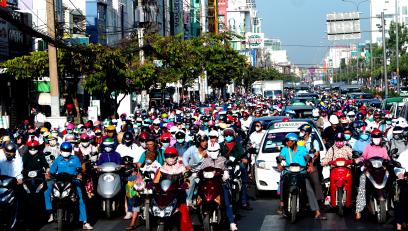
I Can’t Believe I Did That
“If ‘future me’ came to visit myself senior year of high school and told me that I would transfer colleges and take a trip to Vietnam, I would have thought it was some kind of joke. But that’s exactly what happened.”
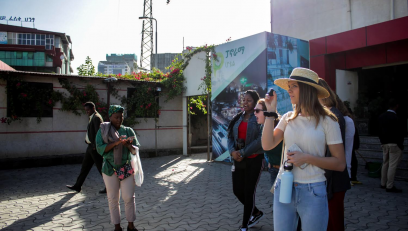
Preview Broadens My Perspective of the World
“I chose this course for a reason: I knew that it was a history and culture that I was blind to, and I wanted to understand more about pressing issues elsewhere in the world.”

